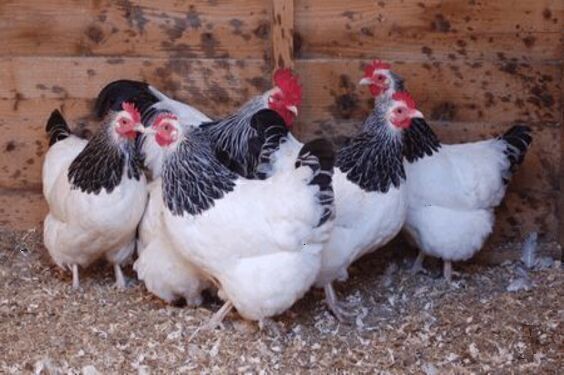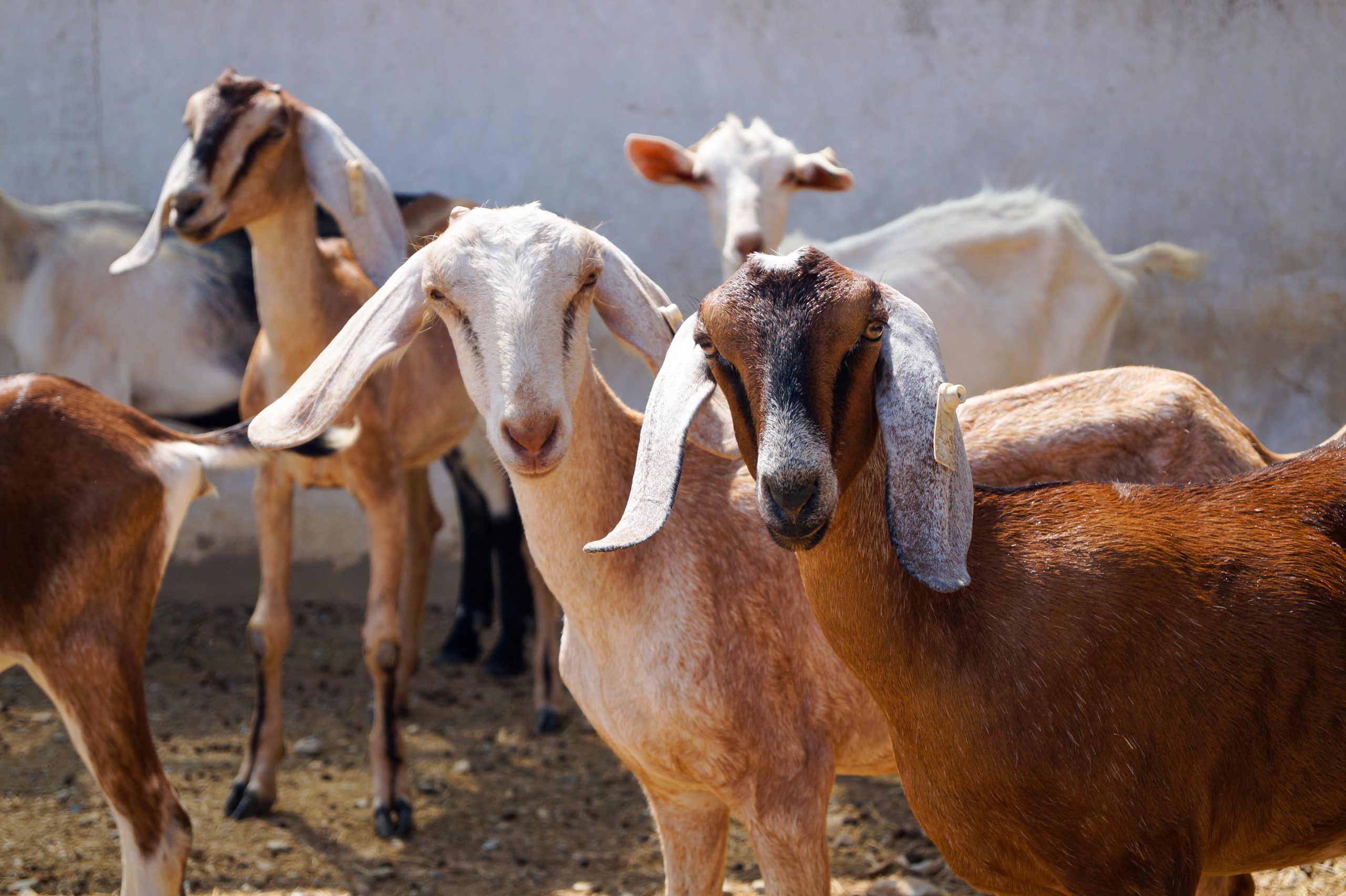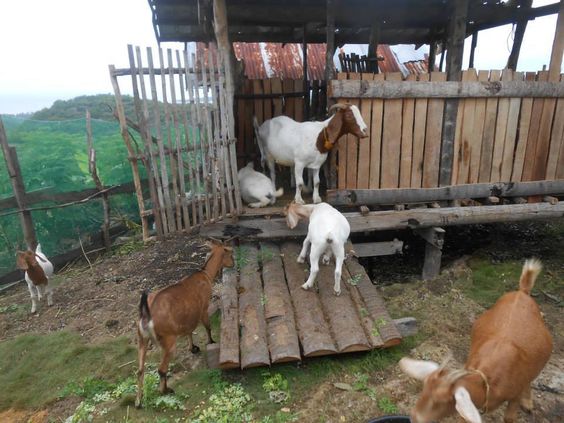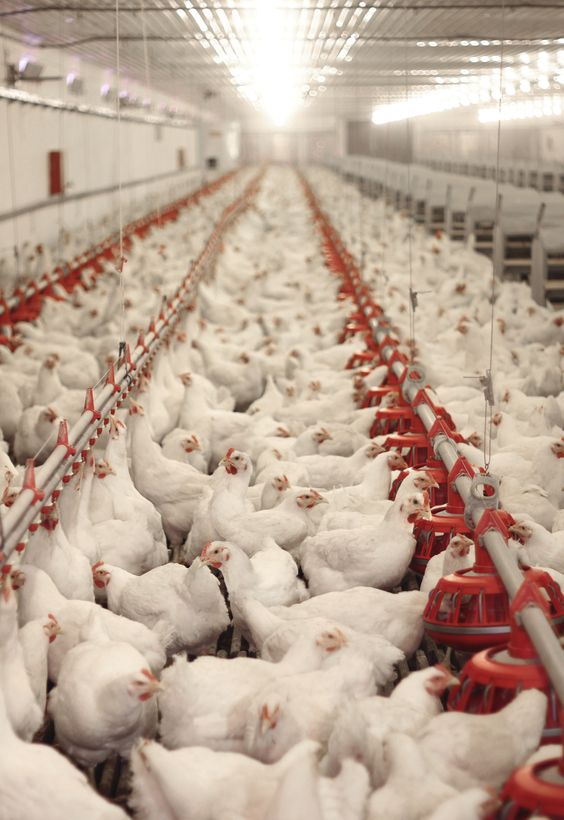Premium Poultry Products: The Future of Ethical, Sustainable, and High-Quality Food Choices
Premium Poultry Products,In the modern food landscape, consumers are more informed and discerning than ever before. The demand for transparency, sustainability, and quality has led to the emergence of premium poultry products, which represent the pinnacle of poultry farming. These products are not just about higher prices, they symbolize a commitment to excellence in every aspect of production, from the ethical treatment of animals to the sustainability of farming practices. As the food industry continues to evolve, premium poultry products are becoming a benchmark for what consumers expect in terms of quality and responsibility.
This comprehensive article delves into the world of premium poultry products, exploring their many facets, including the benefits they offer to consumers, the goals of producers, ideas for promoting these products, and the numerous advantages they provide. By understanding the intricacies of premium poultry, we can appreciate the value they bring to the table and the positive impact they have on the food industry.
The Rise of Premium Poultry Products
Historical Context and Market Evolution
The concept of premium poultry products is not entirely new; however, it has gained significant momentum in recent years. Historically, poultry farming was a small-scale operation, with farmers raising chickens and other birds primarily for local consumption. The industrialization of agriculture in the 20th century brought about mass production methods, which prioritized quantity over quality. While this led to an increase in the availability of poultry products, it also raised concerns about the conditions in which animals were raised, the use of antibiotics and hormones, and the overall quality of the meat.
In response to these concerns, a growing segment of consumers began seeking alternatives to conventional poultry products. This shift in consumer behavior created a demand for poultry products that were not only superior in taste and nutrition but also aligned with ethical and sustainable practices. Thus, the premium poultry market was born.
Defining Premium Poultry Products
Premium poultry products are characterized by several key attributes:
- High-Quality Breeding: Premium poultry often comes from specific breeds known for their superior meat quality. These birds are typically slower-growing and have access to better nutrition, resulting in meat that is more tender and flavorful.
- Ethical Farming Practices: One of the hallmarks of premium poultry is the humane treatment of animals. This includes providing ample space for birds to move, access to the outdoors, and a diet free from antibiotics and hormones.
- Sustainable Farming: Premium poultry producers often prioritize sustainability, employing practices that reduce environmental impact, such as rotational grazing, organic feed, and efficient waste management.
- Transparency: Premium poultry products are often accompanied by detailed information about their origins, including the farm where the birds were raised, their diet, and the farming practices used. This transparency builds trust with consumers who are increasingly interested in knowing where their food comes from.
The Benefits of Premium Poultry Products
Nutritional Superiority: A Healthier Choice
One of the most compelling reasons to choose premium poultry products is their nutritional superiority. Studies have shown that poultry raised in healthier environments with access to a natural diet tend to have higher levels of essential nutrients. For example:
- Omega-3 Fatty Acids: Birds that are free-range or pasture-raised often have higher levels of omega-3 fatty acids, which are beneficial for heart health, reducing inflammation, and supporting brain function.
- Vitamins and Minerals: Premium poultry products are typically richer in vitamins A and E, as well as minerals like iron and zinc, which are crucial for maintaining good health.
- Lower Fat Content: The meat from premium poultry products often has a lower fat content compared to conventionally raised poultry, making it a healthier option for consumers looking to reduce their intake of saturated fats.
Enhanced Flavor and Texture: A Gourmet Experience
The flavor and texture of premium poultry products are often cited as significant advantages. The factors contributing to this include:
- Breed Selection: The specific breeds used in premium poultry farming are often chosen for their superior meat quality. These breeds tend to have more tender and flavorful meat.
- Diet and Environment: The diet of premium poultry, often consisting of organic feed or access to natural forage, contributes to the enhanced flavor of the meat. Additionally, the stress-free environment in which these birds are raised helps maintain the tenderness of the meat.
- Aging Process: Some premium poultry products undergo a dry-aging process, which further enhances the flavor and texture of the meat, making it a favorite among gourmet chefs and food enthusiasts.
Ethical and Sustainable Production: A Responsible Choice
For many consumers, the ethical and sustainable production of premium poultry products is a primary consideration. These products offer several benefits in this regard:
- Animal Welfare: Premium poultry farming prioritizes the humane treatment of animals. Birds are given space to move, access to the outdoors, and a diet that is free from harmful additives. This not only leads to better quality meat but also aligns with the ethical values of many consumers.
- Environmental Impact: Premium poultry producers often employ sustainable farming practices, such as rotational grazing, organic feed, and water conservation measures. These practices reduce the environmental footprint of poultry farming, making premium products a more responsible choice.
- Support for Small Farmers: Many premium poultry products come from small to mid-sized farms that prioritize quality over quantity. By choosing these products, consumers support local agriculture and help sustain farming communities.
Transparency and Traceability: Building Trust with Consumers
In an era where consumers are increasingly concerned about the origins of their food, transparency and traceability have become crucial factors in the purchasing decision. Premium poultry products often come with detailed information about their origins, including:
- Farm Information: Consumers can learn about the specific farm where the birds were raised, including details about the farming practices used, the breed of the birds, and their diet.
- Processing Practices: Premium poultry products often include information about the processing methods used, ensuring that the meat has been handled with care and in accordance with high standards.
- Certifications: Many premium poultry products carry certifications that validate their quality, ethical standards, and sustainability. These certifications provide consumers with peace of mind, knowing that the products they are purchasing meet rigorous standards.

The Goals of Premium Poultry Producers
Achieving the Highest Standards of Quality
The primary goal of premium poultry producers is to achieve and maintain the highest standards of quality throughout the production process. This involves several key components:
- Breed Selection: Producers carefully select breeds that are known for their superior meat quality. These breeds are often slower-growing, which allows for more natural development and results in more tender and flavorful meat.
- Optimal Nutrition: Providing birds with optimal nutrition is essential for producing high-quality meat. Premium poultry producers often use organic feed or allow birds to forage naturally, ensuring they receive a balanced diet rich in essential nutrients.
- Humane Treatment: Ensuring the humane treatment of birds is a cornerstone of premium poultry farming. This includes providing ample space, access to the outdoors, and minimizing stress throughout the birds’ lives.
- Processing Standards: The processing of premium poultry products is done with great care to maintain the quality of the meat. This includes using methods that preserve flavor and texture, as well as ensuring that the meat is free from harmful additives.
Promoting Sustainability: A Commitment to the Environment
Sustainability is a core principle for many premium poultry producers. Their goals in this area include:
- Reducing Environmental Impact: Premium poultry producers aim to reduce their environmental footprint through sustainable farming practices. This includes responsible land use, efficient water management, and minimizing greenhouse gas emissions.
- Organic and Regenerative Practices: Many premium poultry farms adopt organic and regenerative farming practices that go beyond sustainability. These practices not only minimize harm to the environment but also actively contribute to the restoration of ecosystems.
- Resource Efficiency: Premium poultry producers often strive for resource efficiency, using innovative methods to reduce waste and optimize the use of natural resources. This includes practices like composting, recycling water, and using renewable energy sources.
Enhancing Consumer Awareness: Educating the Market
Educating consumers about the benefits of premium poultry products is a key goal for producers. This involves:
- Marketing and Branding: Premium poultry producers invest in marketing and branding efforts to differentiate their products from conventional offerings. This includes highlighting the unique qualities of their products, such as superior taste, ethical production, and sustainability.
- Consumer Education Campaigns: Producers often launch educational campaigns to inform consumers about the differences between standard and premium poultry products. These campaigns may focus on the health benefits, ethical considerations, and environmental impact of choosing premium options.
- Community Engagement: Engaging with local communities and consumers through events, farm tours, and cooking demonstrations helps build awareness and appreciation for premium poultry products.
Expanding Market Reach: Making Premium Accessible
While premium poultry products often cater to a niche market, producers are increasingly looking to expand their reach. This involves:
- Strategic Partnerships: Collaborating with retailers, restaurants, and food service providers to make premium poultry products more widely available. These partnerships can help bring premium products to a broader audience.
- Distribution Channels: Expanding distribution channels to include online platforms, specialty stores, and direct-to-consumer sales can increase accessibility to premium poultry products.
- Pricing Strategies: While premium products are often priced higher than conventional options, producers may explore pricing strategies that make these products more accessible to a wider range of consumers, such as offering smaller portions or bundles.
Innovation in Poultry Farming: Pioneering New Practices
Innovation is at the heart of premium poultry production. Producers are constantly exploring new methods and technologies to improve their products and practices. Key areas of innovation include:
- Precision Farming: The use of technology to monitor and manage poultry farming operations with greater accuracy. This includes using sensors to track the health and well-being of birds, as well as optimizing feed and water usage.
- Feed Innovation: Experimenting with different feed formulations to enhance the quality of the meat. This may include incorporating alternative protein sources, such as insects or algae, to create a more sustainable and nutritious diet for the birds.
- Sustainable Packaging: Developing sustainable packaging solutions that reduce waste and environmental impact. This may include using biodegradable or recyclable materials, as well as minimizing packaging overall.

Ideas for Promoting Premium Poultry Products
Educational Campaigns: Informing and Inspiring Consumers
Educational campaigns are essential for raising awareness about the benefits of premium poultry products. These campaigns can take various forms, including:
- Health-Focused Campaigns: Highlighting the nutritional benefits of premium poultry products, such as higher levels of omega-3 fatty acids and lower fat content. These campaigns can be targeted at health-conscious consumers who are looking for better protein options.
- Ethical and Sustainable Campaigns: Focusing on the ethical and sustainable aspects of premium poultry farming, such as humane treatment of animals and environmentally friendly practices. These campaigns can appeal to consumers who prioritize responsible consumption.
- Cooking and Recipe Campaigns: Sharing recipes and cooking tips that showcase the superior flavor and texture of premium poultry products. This can include collaborations with chefs and food influencers to create engaging content that inspires consumers to try premium options.
Collaborations with Chefs and Food Influencers: Building Credibility
Partnering with chefs and food influencers can significantly boost the visibility and credibility of premium poultry products. These collaborations can include:
- Recipe Development: Working with chefs to develop unique recipes that highlight the qualities of premium poultry products. These recipes can be featured in cookbooks, online platforms, and cooking shows.
- Cooking Demonstrations: Hosting cooking demonstrations at events, farmers’ markets, or online platforms where chefs and influencers prepare dishes using premium poultry products. These demonstrations can help consumers see the difference in quality firsthand.
- Endorsements: Securing endorsements from well-known chefs and food influencers who can vouch for the quality and taste of premium poultry products. These endorsements can be featured in marketing materials and social media campaigns.
Farm-to-Table Events: Creating a Connection with Consumers
Farm-to-table events are an excellent way to create a deeper connection between consumers and premium poultry products. These events can include:
- Farm Tours: Organizing tours of the farms where premium poultry products are raised, allowing consumers to see the ethical and sustainable practices firsthand. This transparency can build trust and loyalty.
- Tasting Events: Hosting tasting events where consumers can sample premium poultry products in various dishes. These events can be held at restaurants, farmers’ markets, or as part of larger food festivals.
- Workshops and Classes: Offering workshops and cooking classes that teach consumers how to prepare premium poultry products. These classes can be led by chefs or farmers and can focus on techniques that enhance the flavor and texture of the meat.
Certification Programs: Building Trust through Standards
Certification programs play a crucial role in building trust with consumers. By establishing clear standards and providing certifications, premium poultry producers can differentiate their products and provide assurance to consumers. Key aspects of certification programs include:
- Quality Assurance: Certifications that verify the quality of the meat, including factors like breed, feed, and processing methods. This can include certifications for organic, free-range, or pasture-raised poultry.
- Ethical Standards: Certifications that validate the humane treatment of animals, such as ensuring that birds have access to the outdoors and are raised without the use of antibiotics or hormones.
- Sustainability: Certifications that recognize sustainable farming practices, including responsible land use, water conservation, and waste management. These certifications can also include carbon footprint reduction efforts.
Digital Marketing Strategies: Reaching a Wider Audience
Digital marketing is a powerful tool for promoting premium poultry products. By leveraging online platforms, producers can reach a broader audience and engage with consumers in meaningful ways. Key strategies include:
- Social Media Campaigns: Creating engaging content for social media platforms that highlight the benefits of premium poultry products. This can include recipe videos, behind-the-scenes farm tours, and customer testimonials.
- Content Marketing: Developing blog posts, articles, and videos that educate consumers about premium poultry products. Topics can range from the health benefits to the ethical considerations of choosing premium options.
- SEO and Paid Advertising: Optimizing websites and online content for search engines to ensure that consumers can easily find information about premium poultry products. Additionally, targeted paid advertising can reach consumers who are actively searching for high-quality food products.
Topic Suggestions for Further Exploration
The Impact of Feed on the Quality of Premium Poultry Products
Feed plays a critical role in determining the quality of poultry meat. This topic can explore how different feed types and formulations affect the nutritional content, flavor, and texture of premium poultry products. It can also examine the use of organic and alternative protein sources in feed and their impact on sustainability.
The Role of Animal Welfare in the Production of Premium Poultry
Animal welfare is a key consideration for many consumers when choosing premium poultry products. This topic can discuss the ethical considerations in poultry farming, such as providing adequate space, access to the outdoors, and minimizing stress. It can also explore how these practices contribute to the premium quality of the final product.
Sustainability Practices in Premium Poultry Farming
Sustainability is a core principle for many premium poultry producers. This topic can analyze the various sustainable practices adopted in premium poultry farming, such as rotational grazing, water conservation, and waste management. It can also explore the impact of these practices on the environment and consumer choices.
The Economic Benefits of Supporting Premium Poultry Farmers
Choosing premium poultry products can have positive economic impacts on local farming communities. This topic can investigate how supporting premium poultry farmers contributes to the economic empowerment of small and mid-sized farms. It can also explore the broader economic benefits of promoting sustainable and ethical farming practices.
Consumer Perception of Premium Poultry Products
Understanding consumer perception is crucial for the success of premium poultry products. This topic can study how consumer awareness and perception of premium poultry products influence purchasing decisions and market trends. It can also explore the role of branding, marketing, and education in shaping consumer perceptions.
Advantages of Premium Poultry Products
Health Benefits: A Nutrient-Rich Option
As previously discussed, premium poultry products offer superior nutritional value, which translates into numerous health benefits for consumers. Some of these benefits include:
- Improved Heart Health: The higher levels of omega-3 fatty acids found in premium poultry products can contribute to better heart health by reducing inflammation, lowering blood pressure, and improving cholesterol levels.
- Stronger Immune System: The vitamins and minerals in premium poultry, such as vitamin A, vitamin E, and zinc, play a crucial role in supporting a healthy immune system, helping the body fend off infections and illnesses.
- Weight Management: With lower fat content and higher protein levels, premium poultry products can support weight management by providing a satisfying and nutritious option for meals, helping consumers maintain a healthy weight.
Ethical Consumption: Aligning with Values
For consumers who prioritize ethical consumption, premium poultry products offer a way to enjoy poultry without compromising their values. Key ethical advantages include:
- Animal Welfare: Premium poultry farming practices prioritize the humane treatment of animals, ensuring that birds are raised in environments that allow for natural behaviors and minimal stress. This aligns with the values of consumers who are concerned about animal welfare.
- Fair Trade Practices: Many premium poultry products come from farms that practice fair trade, ensuring that farmers and workers are paid fairly for their labor. This supports ethical consumption by promoting social justice and equity in the food supply chain.
- Support for Ethical Brands: By choosing premium poultry products, consumers can support brands that are committed to ethical practices, including sustainability, transparency, and responsible sourcing. This creates a positive feedback loop, encouraging more companies to adopt ethical practices.
Superior Taste Experience: Elevating Culinary Delights
The taste and texture of premium poultry products are unmatched, making them a preferred choice for gourmet cooking and culinary enthusiasts. Some of the taste advantages include:
- Tenderness: Premium poultry products are often more tender due to the slower growth of the birds and the humane handling practices used in their production. This tenderness enhances the overall eating experience, making the meat more enjoyable.
- Flavor Profiles: The natural diet and stress-free environment of premium poultry contribute to richer and more complex flavor profiles. This makes premium poultry products ideal for a wide range of culinary applications, from simple roasts to elaborate gourmet dishes.
- Versatility: The superior quality of premium poultry meat makes it highly versatile in the kitchen. Whether grilled, roasted, braised, or sautéed, premium poultry products deliver consistent results, making them a reliable choice for chefs and home cooks alike.
Environmental Stewardship: A Sustainable Choice
Environmental sustainability is a key advantage of premium poultry products. By choosing these products, consumers are supporting farming practices that prioritize environmental stewardship. Key environmental benefits include:
- Reduced Carbon Footprint: Premium poultry producers often adopt practices that reduce the carbon footprint of their operations, such as using renewable energy, minimizing waste, and optimizing resource use. This makes premium poultry a more sustainable choice compared to conventionally raised poultry.
- Biodiversity Conservation: Many premium poultry farms practice rotational grazing and other methods that promote biodiversity on the farm. This includes maintaining healthy soil, protecting native plant species, and supporting local wildlife.
- Water Conservation: Water is a critical resource in poultry farming, and premium poultry producers often implement water conservation measures to reduce their impact on local water supplies. This includes using efficient irrigation systems, recycling water, and protecting natural water sources.
Economic Empowerment: Supporting Local and Sustainable Agriculture
Purchasing premium poultry products can have a positive impact on local economies and contribute to the sustainability of small and mid-sized farms. Economic advantages include:
- Supporting Small Farmers: Many premium poultry products are sourced from small to mid-sized farms that prioritize quality over quantity. By choosing these products, consumers are directly supporting these farmers and helping to sustain their operations.
- Promoting Local Agriculture: Premium poultry products are often produced by local farmers who are committed to sustainable and ethical practices. Supporting these products helps promote local agriculture and strengthens the local food system.
- Encouraging Sustainable Practices: The success of premium poultry products demonstrates that there is a market for sustainable and ethical farming practices. This encourages more farmers to adopt these practices, leading to a more sustainable and resilient food system.
Premium poultry products represent a shift towards quality, sustainability, and ethical responsibility in the food industry. As consumers become more aware of the impact of their food choices, the demand for premium poultry products is likely to continue growing. These products offer numerous benefits, from superior nutrition and taste to ethical consumption and environmental stewardship.






